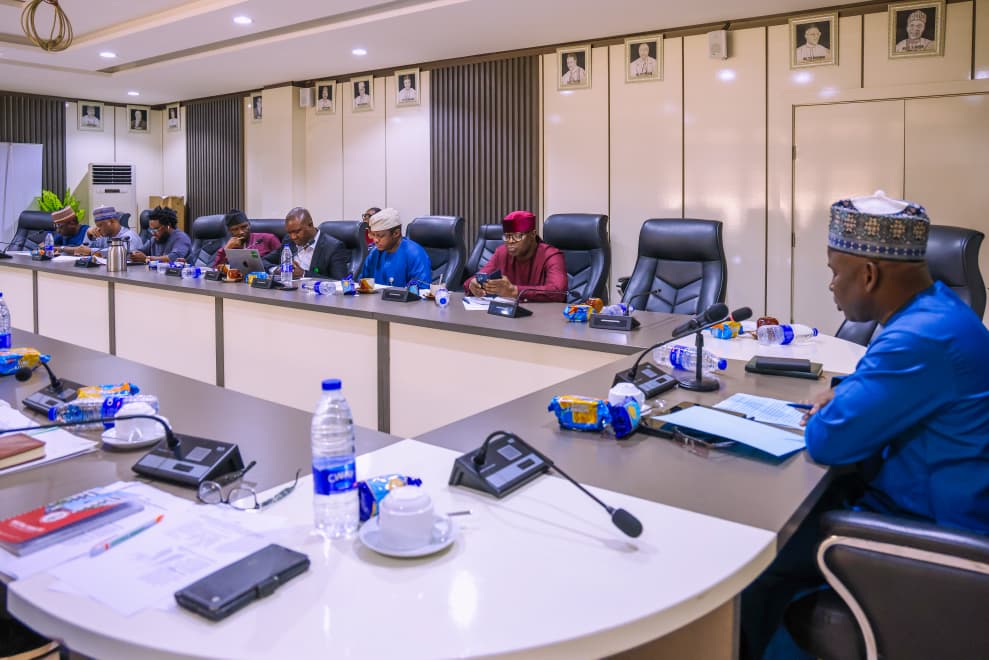Security Policies Are Failing Nigerians, Creating Victims, Says Yusuf Ali
Security Policies Are Failing Nigerians, Creating Victims, Says Yusuf Ali
Wale Igbintade
Senior Advocate of Nigeria (SAN), Prof. Yusuf Ali, has warned that Nigeria’s current security strategies, rather than safeguarding citizens, are creating new victims among the country’s most vulnerable populations.
Delivering the keynote address titled “The Impact of National Security Policies on Vulnerable Populations: A Human Rights Perspective” at the Gavel International Annual Lecture and Awards 2025, Ali said the nation’s counter-terrorism and law enforcement policies have increasingly deviated from constitutional safeguards, resulting in widespread human rights violations.
“The reality is that many of our security measures have turned citizens into victims. We have created a system where the people we are supposed to protect are being displaced, detained, or deprived of dignity under the guise of national security,” Ali said.
He noted that the poor, women, children, and internally displaced persons (IDPs) have suffered disproportionately from operations targeting terrorism, banditry, and separatist agitation.
Ali emphasised that national security must be pursued without compromising human dignity. “Security must be holistic—encompassing safety, justice, and welfare. Where the state fails to uphold the rule of law or meet the basic needs of its people, insecurity will persist regardless of the number of troops deployed,” he added.
Citing humanitarian crises across the North-East and Middle Belt, Ali highlighted the plight of millions of displaced Nigerians living in dire conditions, exposed to hunger, disease, and abuse.
He condemned the lack of accountability in security operations, which fosters impunity among security agencies and erodes public trust.
Ali also criticised provisions of the Terrorism (Prevention and Prohibition) Act 2022, particularly those allowing prolonged detention without trial. “Laws designed to fight terrorism should not themselves become tools of terror. We cannot detain people indefinitely or silence dissent in the name of protecting the state.”
He called for human rights training for military, police, and intelligence officers, alongside independent oversight mechanisms and stronger legislative checks on executive power.
Ali urged inclusive policymaking, engaging communities most affected by insecurity to foster trust and sustainable peace.
In his remarks, retired Major General Dr. James Ataguba highlighted corruption and the absence of an effective punishment and reward system as central to Nigeria’s insecurity.
He criticised the widespread deployment of the military for civilian policing, saying, “The military is not meant to be embedded among civilians—that’s the job of the police. When soldiers act outside their mandate, they create more problems than they solve.”
Ataguba, former Chief of Standards and Evaluation, Nigerian Army, linked insecurity to poverty and unemployment, warning that even if Boko Haram is defeated, new insurgencies will emerge unless structural issues are addressed.
He stressed the importance of consistent law enforcement and functional institutions, citing unlicensed commercial motorcyclists and tricycles as contributors to insecurity.
“Justice must not take 10 years. If people know they can go to jail within six months of robbing the state, they will think twice before doing it,” he said, calling for judicial reform alongside security sector reform to ensure deterrence and accountability.
Speaking, Pastor Dele Adesina, SAN, former General Secretary of the Nigeria Bar Association, described Nigeria’s 1999 Constitution as fundamentally flawed, undermining federalism and impeding governance.
He criticised Sections 214 and 215 for centralising policing under federal authority while restricting governors’ control over law enforcement.
“Can anyone mention one federal country that operates a single, centralised police force? None. Until we address these fundamental issues, we will continue to mark time,” Adesina said, noting systemic behavioural contradictions among Nigerians that signal deficiencies beyond constitutional provisions.
In his welcome address, Gavel International Publisher Mustapha Ogunsakin framed Nigeria’s insecurity as both a national and international concern.
He rejected narratives framing violence in Nigeria as religious genocide, emphasising that conflict affects all communities indiscriminately.
“Regions like Eastern Nigeria, predominantly Christian, face communal conflict and militancy unrelated to Muslim persecution. Violence is rooted in poor governance and economic crises, not religion,” Ogunsakin said.
He urged the political class to rise above partisanship and support security reforms, commending efforts by President Bola Ahmed Tinubu.
He also recognised Nigerians contributing to justice, human rights, and governance reforms, including former Vice President Prof. Yemi Osinbajo, Chief Wole Olanipekun, and Mr. Gbenga Oyebode.
Wale Igbintade Senior Advocate of Nigeria (SAN), Prof. Yusuf Ali, has warned that Nigeria’s current security strategies, rather than safeguarding citizens, are creating new victims among the country’s most vulnerable
Read more






